I'm Already Playing Civ 7 In The Worst Way Possible
I'm a fan of Sid Meier's Civilization 7, but I'm afraid that my worst impulses might get in the way of some of the game's strengths. While the game has some problems, most of them seem like relatively achievable fixes, and I'd argue that the barebones original release of Civ 5 may feel more incomplete when playing without expansions even today. My biggest hesitations regarding Civ 7 involve how unsubtle its approach to progression can be, and now that I've had time to get deeper into the multiplayer experience, I'm finding it hard not to abuse the system.
Civ 7's defining feature is its Ages system, which transitions between eras and civilizations with surprisingly hard resets. It can be a great way to stop a snowball or regroup with a failing civilization, but it can also feel like flipping a binary switch that should have a little more nuance. Some of my most memorable experiences so far have come from the impact of age changes on my games, for better or worse, and those major shifts feel even more pronounced when I'm speedrunning history with friends.
War In Civ 7 Is Way More Appealing With No Real Risks
Friedrich Must Suffer
My current multiplayer game of Civ 7 has been, overall, a relatively relaxing one. With two human players serving as a physical buffer between me and the AI in the Antiquity Age, I haven't been thrust into any unwanted conflicts. I had the good fortune of rolling Confucius with the random leader selection, so aside from some disagreements with Independent Powers and a minor scuffle I initiated with another player, I spent all of Antiquity and most of Exploration content to watch my Science numbers go up.

Sid Meier's Civilization 7 Review: Rewriting History In Beautiful, Messy Strokes
Sid Meier's Civilization 7 evolves the defining 4x series with both elegant additions and imperfect changes, but the end results are still glorious.
I do, however, have an archnemesis in this game — Friedrich. As the only leader who has unfailingly appeared in every Civ 7 game I've played so far, Friedrich has started to become an inherently annoying presence, and his decision to settle some cities on prime real estate just as I was getting a foothold in the Distant Lands eroded my already thin layer of patience. The answer, of course, is to start a war, but with my mediocre Distant Lands presence, the effort could quickly grow risky.
As we neared the end of the age, however, the solution was obvious. I recruited one of my friends who shared my enmity towards Friedrich for a simple endeavor. While assembling some units near his borders, we tanked our relationships with Friedrich, planning for me to take a settlement encroaching on my borders and my friend to capture a settlement butting up against his own. A two-pronged assault would get us both what we wanted while making it hard for Friedrich to defend either settlement adequately, but more importantly, we could go to war without any fear of immediate retribution.
Civ 7's Age Transitions Beg To Be Manipulated
Opportunities Too Obvious To Ignore
What made the assault on Friedrich so different from my experience in past Civ games was, naturally, the Ages system. If we timed everything properly, the Age would end shortly after we each claimed our settlement of choice, and the war would dissipate as the Ages transitioned. Friedrich would still be a bit unhappy with us in the Modern Age, but that wasn't too much of a concern.

How To Complete All Legacy Paths In Civ 7's Modern Age
Civilization 7's Modern Age has four unique Legacy Paths that can be completed in their entirety to unlock the final Victory Conditions in the game.
It was a fun maneuver, and I'd imagine that a large percentage of Civ 7 players have started wars on the cusps of age transitions for similar reasons. At the same time, it's not the kind of strategy that feels particularly appropriate to the Civ experience. While timing is often key, as elements like tech tree breakthroughs can also be crucial for clever war planning, these kinds of plans usually feel reasonably historical in nature. Planning around a hard shift between Ages, on the other hand, doesn't qualify as much more than taking advantage of a rigid, arbitrary mechanic.
I'm usually a proponent of simply avoiding in-game opportunities that feel overpowered, but Civ is a strategy game, and completely ignoring the way that age resets factor into strategy would be just as artificial of a choice. At times, its impact can feel genuinely exciting, like pulling out of a happiness crisis by hanging on until the Ages change. When planning wars around it, however, I ultimately feel like I'm interacting with overly transparent mechanics rather than playing around in the vaguely historical sandbox that has always defined the series.
Age Changes Can Still Surprise In Civilization 7
Progress Isn't Set In Stone
Despite their transparency, age transitions can still be chaotic in Civ 7, and that did end up adding another entertaining layer to the war on Friedrich. I planned the war according to the timing of my Legacy Path advancements and my ally's, but the third player, who ended up also taking on Friedrich on a third front, forgot to be quite as careful.
After our successful captures, the two of us who initiated the war decided to grab a second settlement each, while the third player started working on a siege of his own. Unthinkingly, however, he unloaded the final treasure fleet needed to complete the Exploration Age's Economic Legacy Path, inviting a sudden end to the Age and turning the mechanic against us.
Deciding when to complete pieces of Legacy Path progress can feel just as mechanically manipulative as the overall act of planning wars, as it might be beneficial to wait a few extra turns to settle a town or unload a treasure fleet for trivial reasons.
While a sudden end to the war wasn't much of a problem, it does point to the merits of not planning a war around the end of an Age if it does stand a good chance at success. It also highlights the web of complexity that can extend from these decisions. In this case, we felt confident that none of the AI civilizations were in a position to suddenly advance the Age, but more threatening AI or a wider array of human players could increase the risk of disrupted plans exponentially.

Civ 7: Why Wars Should Persist Across Ages
In Sid Meier's Civilization 7, wars do not persist across the Ages, and all troops will be reset and diminished, and it's a big momentum killer.
I'm enjoying approaching a Civ game in a different way, and I'm happier to see Civ 7 overcommit to some ideas than I would be to play another more modest iteration of Civ 5's overhaul to the formula. In the long run, though, I'd like to see the systems evolve to make decisions like end-of-age wars feel more complex and historically grounded. I don't want to see Civilization 7 abandon these concepts, but after a few hundred more hours of fun with the game as it currently stands, I'm sure I'll be ready to play in a more thoughtful way.
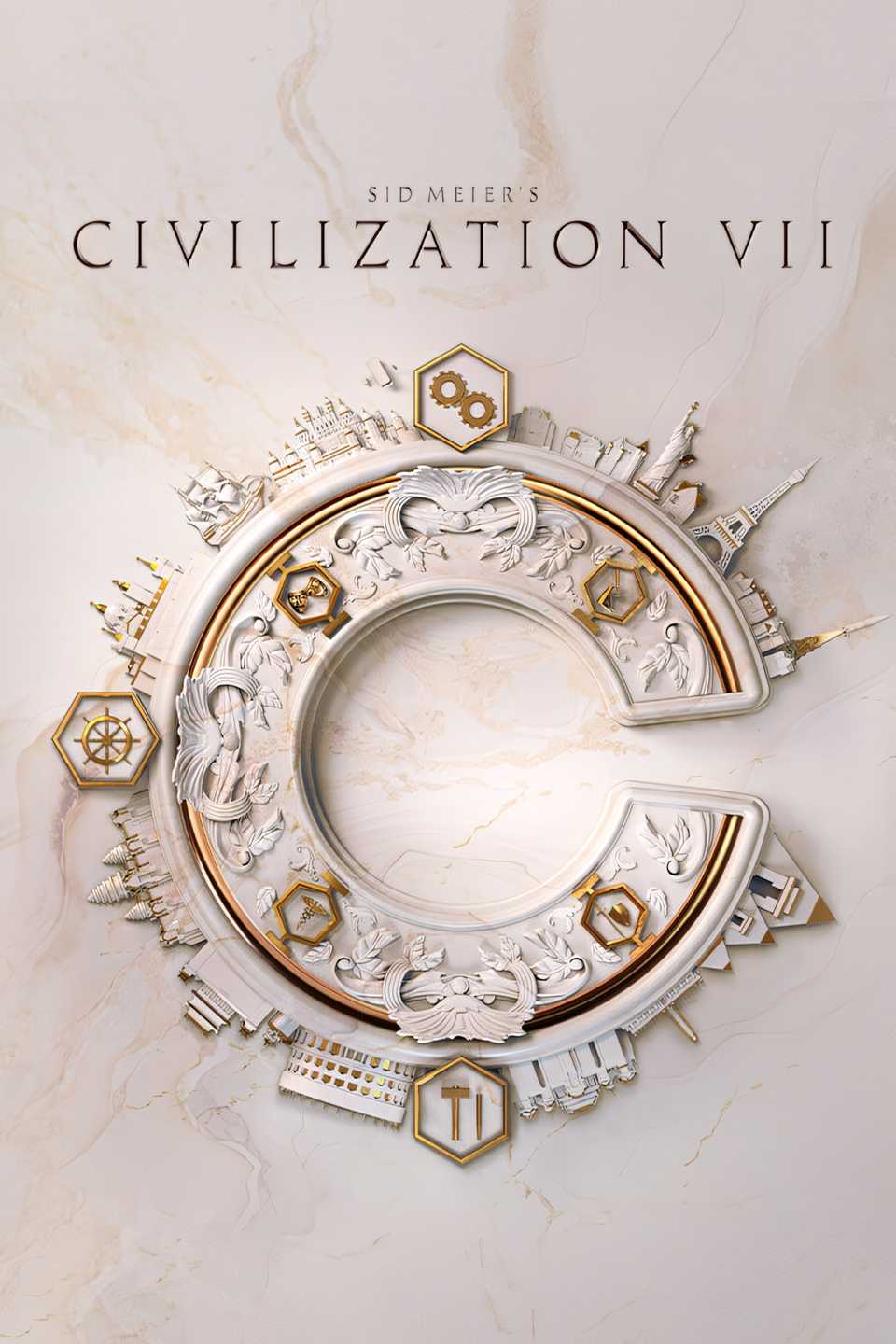
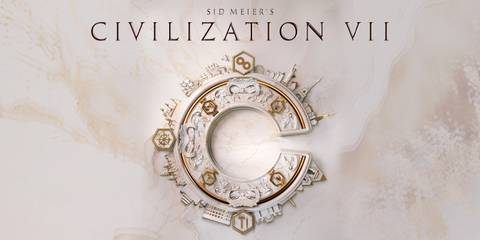
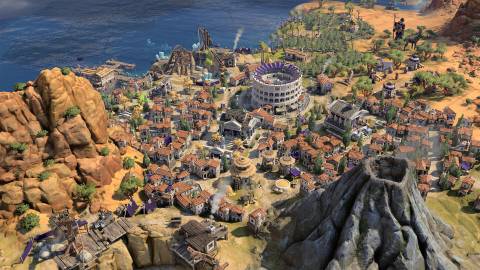
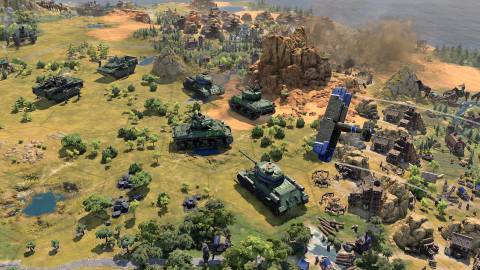
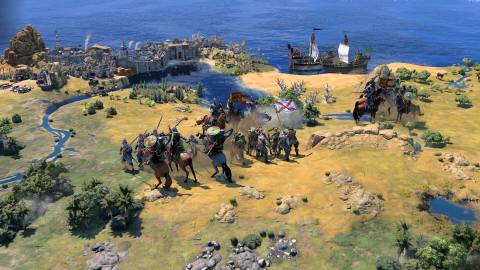
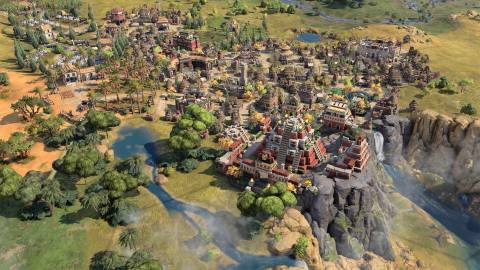
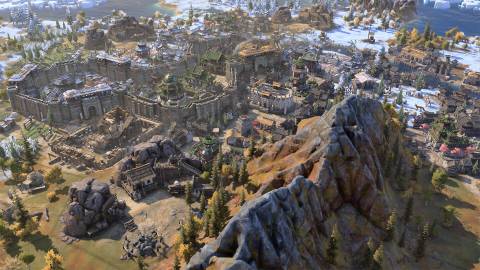
Sid Meier's Civilization VII
 OpenCritic Reviews
OpenCritic Reviews- Released
- February 11, 2025
- ESRB
- Everyone 10+ // Alcohol and Tobacco Reference, Mild Language, Mild Violence, Suggestive Themes
- Developer(s)
- Firaxis Games
- Publisher(s)
- 2K
- Engine
- Gamebryo Engine

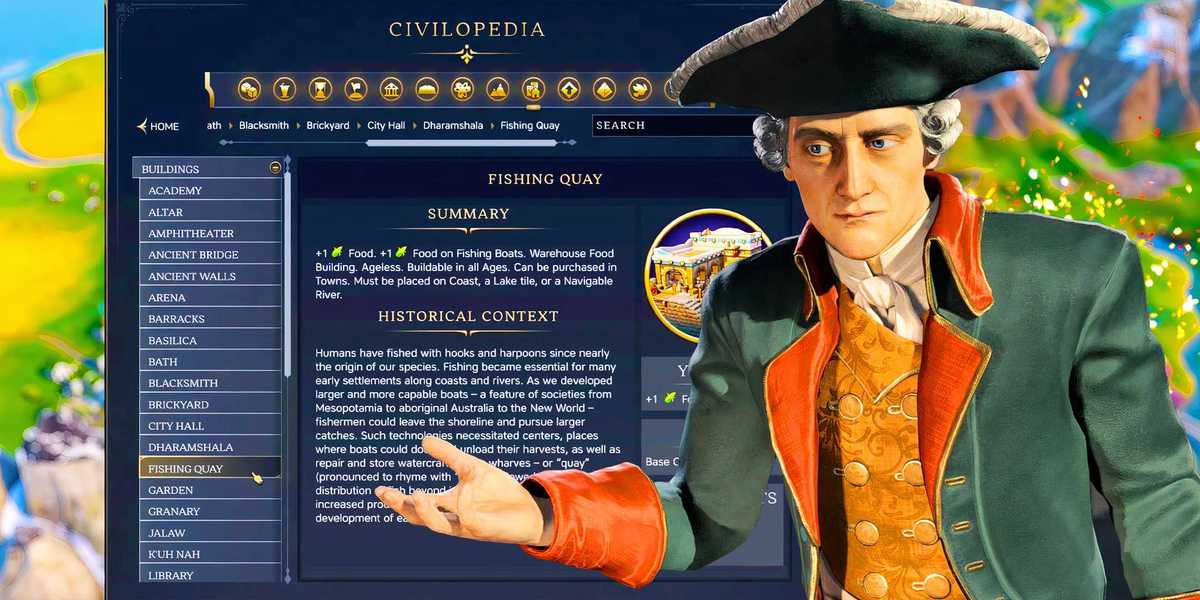
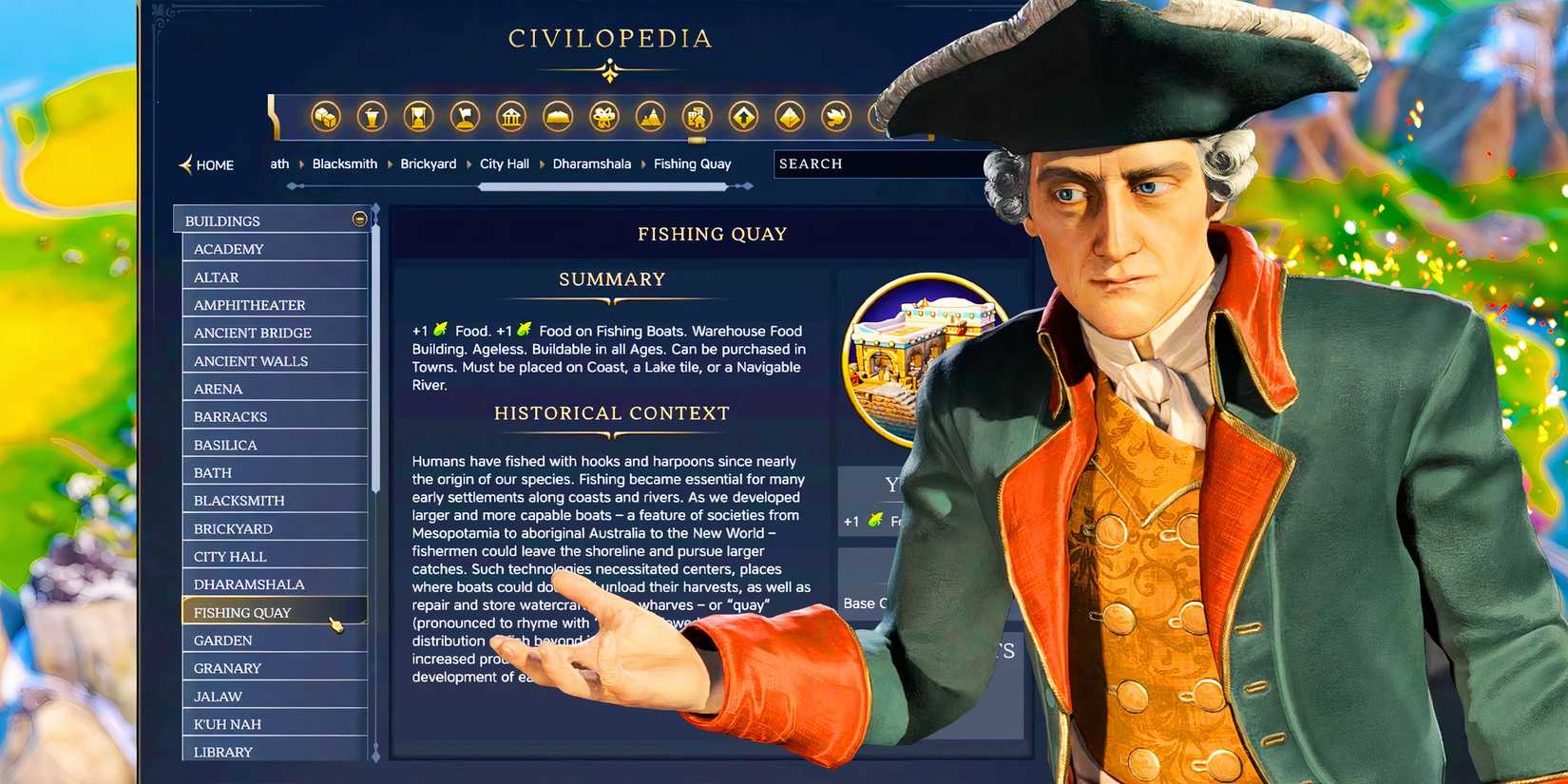








Your comment has not been saved